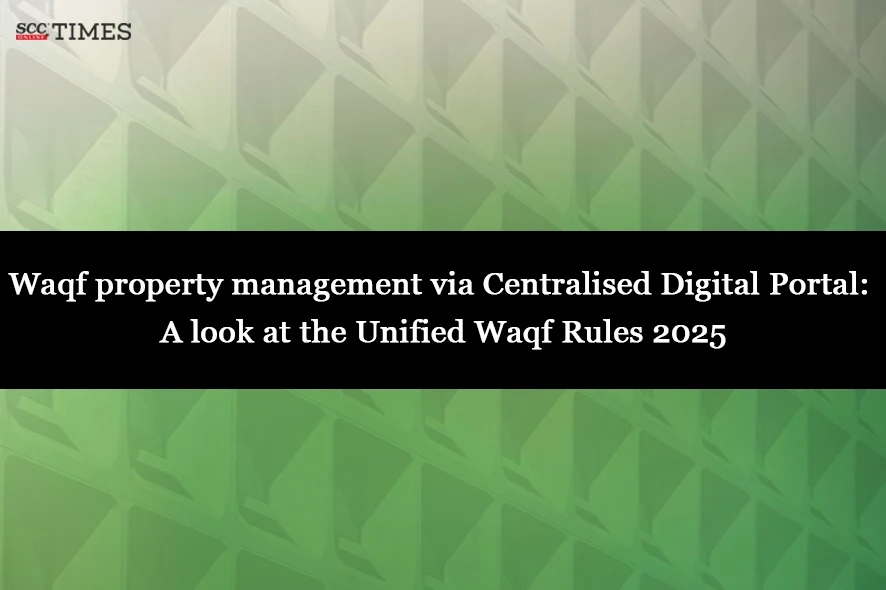On 3-7-2025, the Ministry of Minority Affairs notified the Unified Waqf Management, Empowerment, Efficiency and Development Rules, 2025 establishing a digital framework for the administration of Waqf properties across India. These Rules streamline governance, ensure transparency, and enable financial and legal accountability through a centralized portal and database. The provisions of these Rules came into effect from 3-7-2025.
Key Points on the Unified Waqf Rules 2025:
- These Rules were notified by the Government under its authority granted by Section 108-B of the Unified Waqf Management, Empowerment, Efficiency and Development Act, 1995, newly incorporated through the Waqf (Amendment) Act, 2025. Their central aim is to ensure all Waqf properties are digitally registered, monitored, and verified.
- A single nationwide digital platform will be developed to carry out essential functions such as:
- Filing Waqf details
- Registering new Waqfs
- Maintaining accounts and audit reports
- Publishing Board proceedings
- The portal and database will enable the Waqf Board and the mutawalli to prepare and maintain their respective books of account and other records on the portal and database and State Government will appoint an officer at least of Joint Secretary rank who will assist in the streamlining of details on portal.
- Every Waqf and its associated property will be assigned a unique identification number, ensuring consistent tracking and preventing duplication.
- Rule 4 of the Rules lay down a real-time digital monitoring structure to oversee property registration, financial management, dispute resolution, and progress on development initiatives.
- Every mutawalli is required to register using their mobile and email through one-time password authentication. They are responsible for entering accurate details of each Waqf under their charge, all of which will be accessible to the Central Waqf Council.
- The portal will be designed a way that it supports live tracking of:
- New Waqf registrations
- Property filings
- Institutional governance
- Legal disputes and resolutions
- Financial audits and resource management
- Surveys and development activities
- A grievance redressal mechanism will be built into the portal, to resolve complaints based on duplication or reviewing, which will be finally decided by the Joint Secretary.
- Each financial year, an independent body will assess the portal’s functionality and submit a report within three months. The Central Government will publish both the review and Action Taken Report in response on the portal within an additional three-month window.
- If a property is wrongly declared as Waqf, the designated officer will take up inquiry against it and submit a report within 1 year of reference by the Collector.
- When the succession in a waqf-alal-aulad fails, its income can be used for the maintenance of widows, divorced women, and orphans. All steps including applications and fund transfers are processed through the digital portal.
- State Government as per the provisions of Rule 9, will publish a list of auqaf in official gazette, and upload these on the portal and database within 90 days, which contains:
- Identification and boundaries of Waqf properties
- Usage and current occupier
- Creator details, creation mode and date
- Purpose of the Waqf
- Present mutawalli and management
- A waqf created after the commencement of the Waqf (Amendment) Act, 2025 will be required to make an application to the Waqf Board for its registration under Sec. 36 of the Act within three months of its creation and a mutawalli will upload the copies of land records of each immovable property of the waqf on the portal and database while registering.
- If someone other than the mutawalli initiates a registration request, the Waqf Board will notify the mutawalli and offer an opportunity to respond before proceeding.
- These Rules set a maximum limit of ₹1 crore as the annual financial contribution that can be collected by the Waqf Board under Sec. 72(1) of the Waqf Act 1995.


